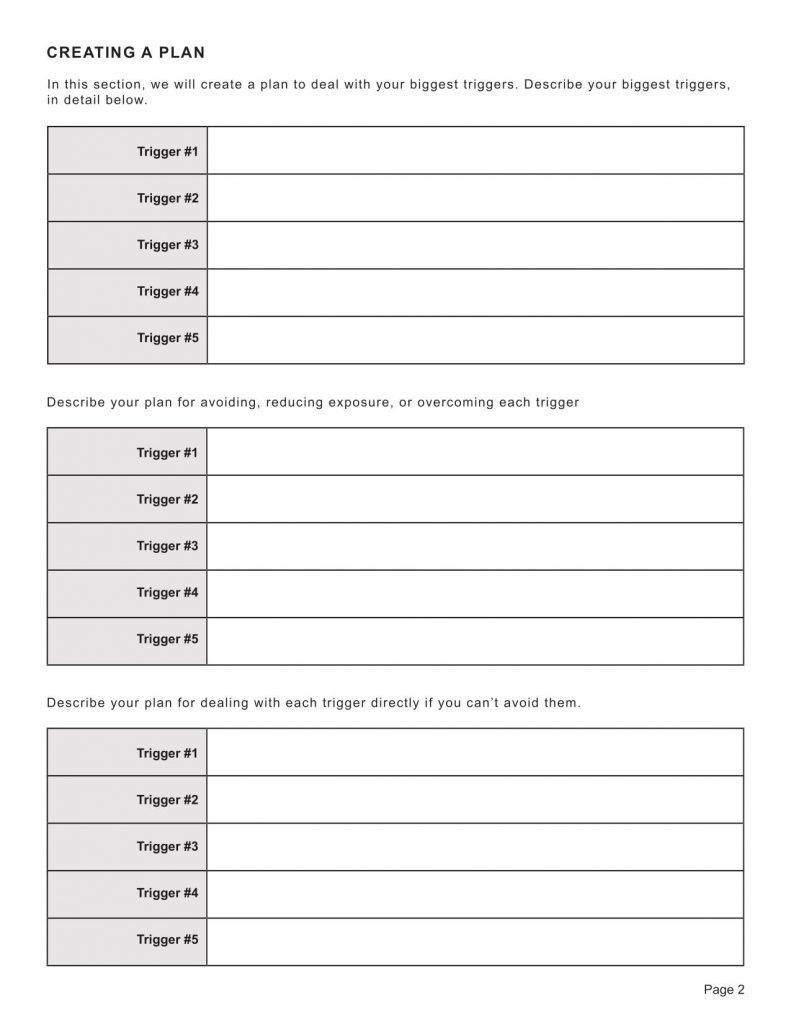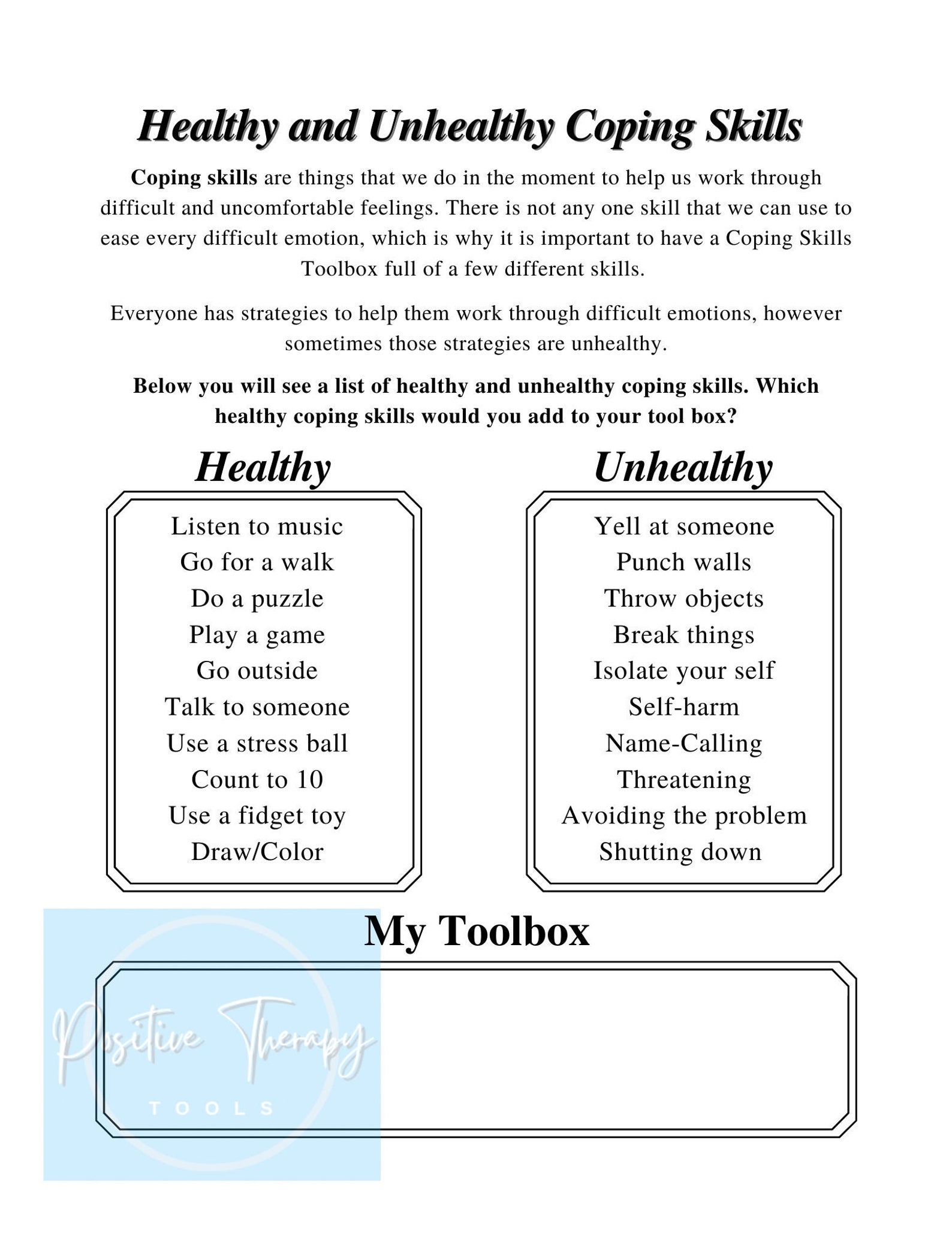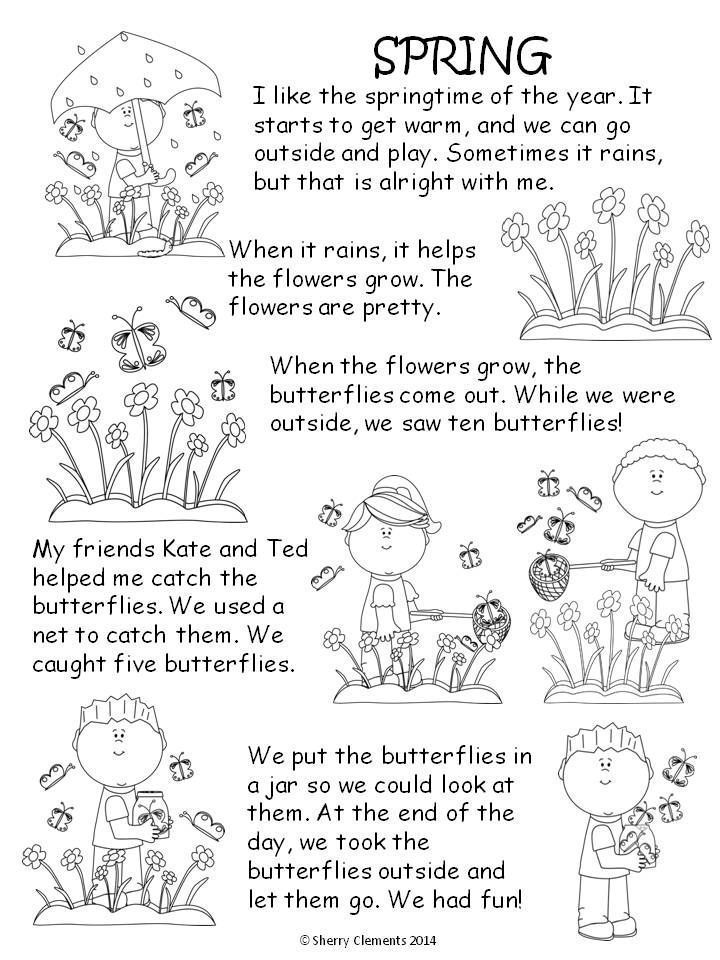Coping Skills Worksheet: Master Your Emotional Triggers

When emotional triggers send us into a tailspin, our mental well-being can become our greatest ally or our worst enemy. Today, we're going to delve deep into the art of mastering emotional triggers with a Coping Skills Worksheet to guide you. This blog post will provide a comprehensive toolkit for understanding, navigating, and overcoming your emotional challenges. Whether it's anxiety, stress, or the occasional overwhelming sadness, these coping strategies and worksheets will be your compass in the storm.
Understanding Emotional Triggers

Before we can master our emotional triggers, we must first understand what they are. Emotional triggers are events, people, situations, or internal feelings that provoke a reaction, often leading to stress, anxiety, or other negative emotions.
- Examples: Receiving negative feedback, an unexpected argument, or even a particular scent or song associated with a past memory.
By identifying these triggers, we're setting the stage for mindful coping. Mindful coping allows us to:
- Recognize the trigger before the emotional response escalates.
- Assess our feelings without judgment.
- Employ coping strategies tailored to the trigger.
🏁 Note: Keep a journal to track your triggers over time. This awareness is a powerful first step toward emotional regulation.
Creating Your Coping Skills Worksheet

A Coping Skills Worksheet acts as your personal guide through the maze of emotions. Here’s how to create one:
| Trigger | Emotional Reaction | Coping Strategy |
|---|---|---|
| Traffic jams | Anxiety, Frustration | Mindfulness, Deep Breathing, Plan an alternate route |

Identifying Triggers

The first step is to pinpoint your triggers:
- Consider situations that consistently provoke a strong emotional response.
- Observe your body's reaction to stress (e.g., elevated heart rate, sweating).
- Keep track of your thoughts and feelings during these moments.
Once you've identified a few triggers, move on to assessing the emotional reaction.
Assessing Emotional Reaction

What emotions do these triggers bring out in you?
- Anger, sadness, fear, or something else?
- How do these emotions manifest physically or behaviorally?
Understanding your reactions gives you the groundwork to develop coping strategies.
Developing Coping Strategies

Your strategies should be:
- Immediate for quick relief (e.g., breathing exercises).
- Long-term for lasting change (e.g., therapy, self-care practices).
- Tailored to the specific trigger and emotional response.
🔄 Note: Coping strategies are not one-size-fits-all. Experiment and personalize to find what works best for you.
Guided Relaxation and Mindfulness Techniques

Now let’s incorporate relaxation and mindfulness techniques into our coping skills:
- Progressive Muscle Relaxation: Tense and relax each muscle group sequentially to release tension.
- Guided Imagery: Use your imagination to transport to a serene environment.
- Mindful Breathing: Focus on your breath, counting inhales and exhales to center your mind.
- Body Scan Meditation: Tune into different parts of your body, noticing sensations without judgment.
🌿 Note: Regular practice can enhance your ability to stay grounded even when triggers arise.
Practical Tips for Daily Use

Here are some additional tips to help integrate your coping skills into daily life:
- Create a 'coping skills kit' with tools like scented oils, stress balls, or cards with affirmations.
- Use reminders on your phone to engage in short mindfulness practices throughout the day.
- Employ technology to track your emotional health with apps designed for mental well-being.
Summing up, our journey towards emotional mastery begins with understanding our triggers, creating a tailored Coping Skills Worksheet, and integrating mindful practices into our routine. This toolkit is not just a theoretical guide but a practical companion to navigating life's emotional waves with grace and resilience.
What if I can’t identify my triggers?

+
Keep a detailed journal of your day-to-day experiences, focusing on moments when you feel a significant shift in your emotions. Patterns will emerge over time, helping you pinpoint your triggers.
How can I make coping strategies more effective?

+
Consistency is key. Practice your coping strategies regularly, not just when you’re triggered. Also, combining strategies like mindfulness with physical activity can yield better results.
Can these coping skills be applied in professional settings?
+
Absolutely. Techniques like mindfulness or strategic breathing can be used discreetly to manage stress or negative feedback in professional environments.
Is it normal to feel overwhelmed by these techniques at first?

+
Yes, learning and applying new coping skills can be overwhelming. With practice, these techniques will become second nature, enhancing your emotional resilience.



